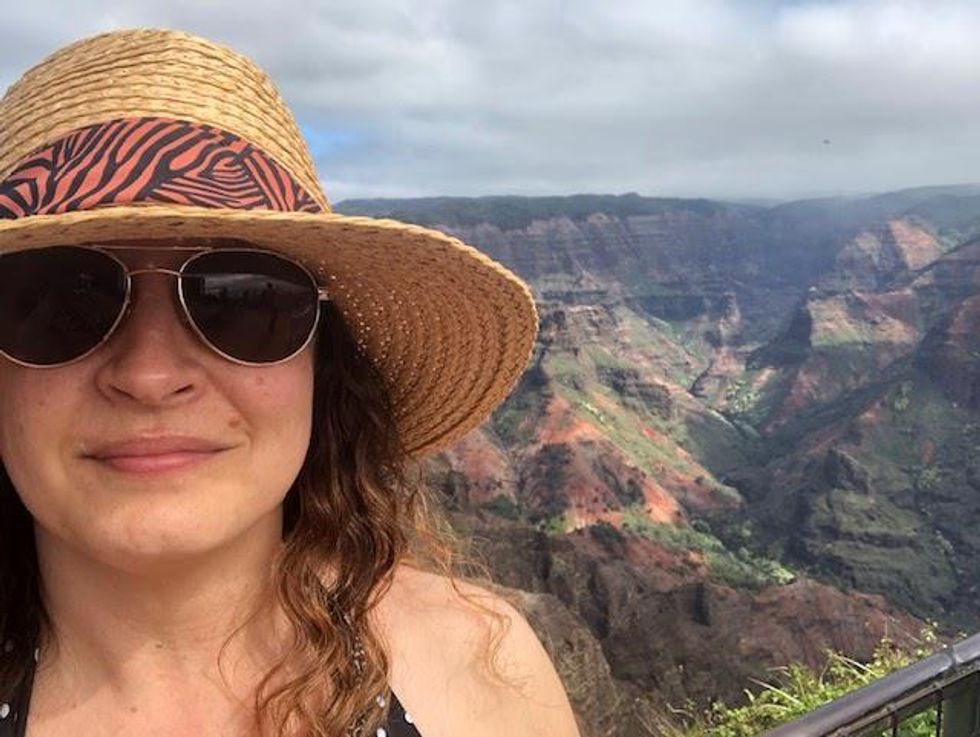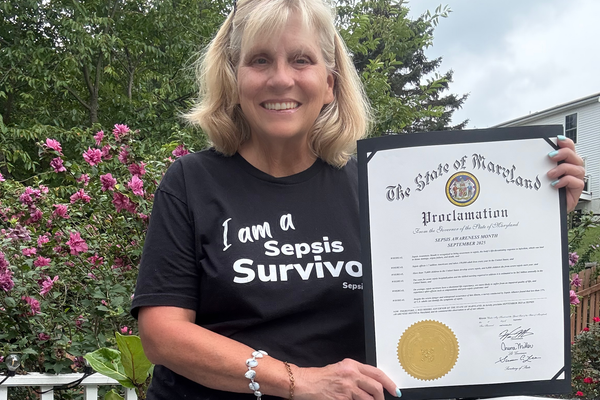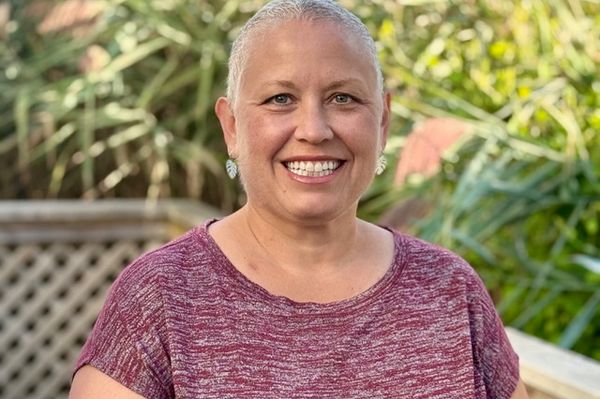By Melissa Neff
This story is part of our Real Women, Real Stories series, documenting the lived experiences of women along their health journeys. Please always consult your health care professional with personal concerns or questions.
On a Monday in early February, when we still believed COVID-19 had only infected a single US citizen, I awoke at dawn to hike with my dogs. Although I knew every curve of the trail by daylight, that morning in the dark, it snaked before me like an ominous maze. As always, I was in a rush — to finish the hike, to start my 10-hour workday. Too impatient to turn on my headlamp, I relied on my muscle memory of the trail. I regretted that split-second choice the minuteI slipped and fell on a single patch of ice,
I tumbled down a tiny crevasse onto my backside, stood up, and swore so loudly that my dogs rushed back to make sure I was alright. Brushing the dirt off my pants, I kept going. I hiked so fast that I missed the turn back towards my car, adding an extra 10 minutes to my walk. When I got home, I was fuming.
By the end of the day, my knee had swelled and was beginning to ache. Two weeks later, a surgeon diagnosed me with an Medial Collateral Ligament (MCL) tear. The left side of my body was now a smorgasbord of injuries: the torn MCL joined two broken metatarsals from 2012, a broken elbow from 2015, and a torn disc I'd had surgically repaired in 2017.
I am no stranger to injury. It seems like every two years since 2012, when I dislocated my shoulder after falling during a trail run, I re-injure myself. This is not due to a pre-existing medical condition, although I do believe that early childhood abuse unconsciously placed my body in defense mode, twisting it in unnatural ways that predisposed me towards injury. My real problem is impatience. I am always in a hurry, never giving my body time to rest or heal. I am always trying to flee myself in the spirit of serving someone else — one way I escape the discomfort of the present moment.
Now it is April, and the U.S. has more diagnosed COVID-19 infections than any other nation. My partner can no longer build other people's houses, but he needs my help to dig fence posts on our property, since social distancing doesn't allow others to help him. Because we live in Montana and have relatively well-paying jobs, we've been lucky — so far, we've survived on 1/3 of our normal income, although this isn't sustainable. But we are together, and we are safe.
Each morning, I put on my psychologist hat, testing clients for Posttraumatic Stress Disorder (PTSD) over Zoom upstairs between cooking shifts, while ignoring my desire to freeze or flee from this historic moment. Three times a day, I stand on my torn knee to mix rice with something — canned vegetables, chicken, taco seasoning. My knee swells by dinnertime, but we still need to walk the dogs and move our bodies, for the sanity of everyone in the household.
Pre-pandemic, my workdays were dotted with appointments to keep my pain at bay: physical therapy, Pilates, osteopathic adjustments, and Rolfing. Now, my physical therapist is laid off, because she can't touch a person through a screen. I can no longer go to the gym to lift weights, and I only thought to order a set after independent sellers on Amazon began price-gouging, rendering them unaffordable. I didn't realize how reliant I was on medical providers to help me until they became unreachable, sheltering in their homes like the rest of us. I never understood the meaning of "essential worker," and how much they do for us — body, mind, and spirit — until I lost touch with the helpers who've been essential to my healing.
Over the past eight years, I've been learning a gradual lesson about injury and pain, and this pandemic provides another unpleasant reminder. I am part of the problem, and I have to become part of the solution. I move too fast to let myself heal. I don't want to feel pain, so I avoid it, try to sidestep it, place it in the hands of other people, because the hurt little girl inside me is still looking to be nurtured. Beneath my busyness and professional accomplishments, I feel weak, vulnerable, and powerless.
This time is proof that I am not powerless. I am privileged to be alive and well, to be able to move just a little, which has to be enough. Now that my physical therapist can't stretch my hamstrings and my osteopath can't straighten my pelvis, I have to do the work myself. So I stretch and squat through free online yoga and Pilates classes. Every day, I strap on my knee brace and hike the steep mountain behind my house, because although the incline hurts my knee, I need to move.
I know that, like the rest of me, my knee will eventually heal. As I trudge through the pain, I observe the sprawling mountain valley below me and realize that this forced slowing-down, this time to reckon with my fear, to mobilize my strength and independence, to realize that I am essential to my own healing, is a gift.
Melissa Neff, Ph.D. is a writer, psychologist, consultant, and speaker living in Montana. Her essays have been featured in The Manifest-Station and On Loan from the Cosmos. She is currently working on a memoir about chronic pain and the unexpected ways it has healed her body, mind, and spirit. Follow her on Twitter: @MelissaNeff17





